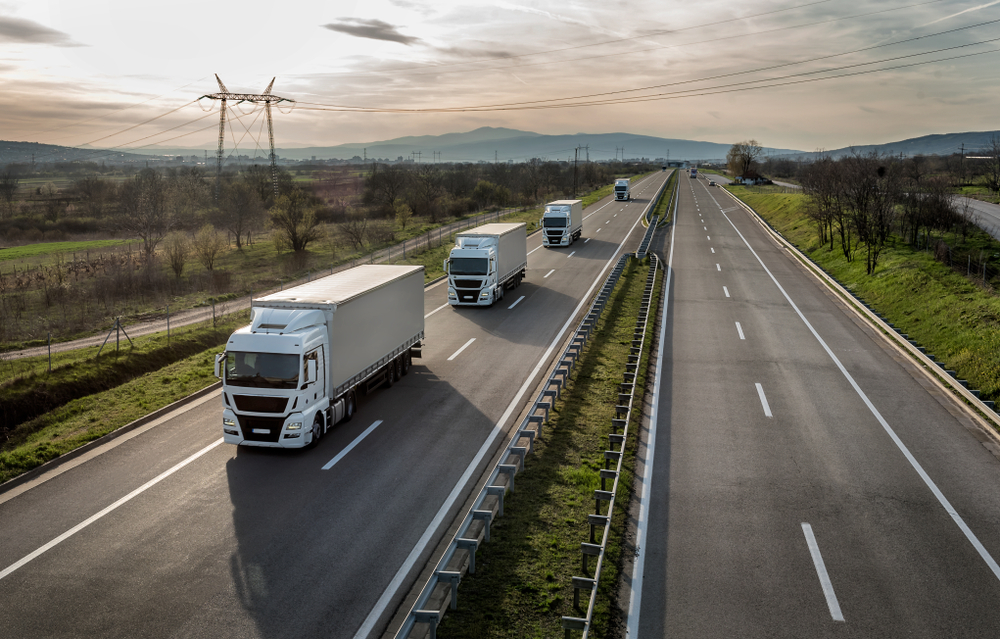A man who has been sleeping for twenty years and woke up in 2024 would find himself in a different transformational era. Along with numerous changes in ecology, politics, the way we live, and diseases we cure, he or she would be astonished by the consequences of the revolution that has redefined each of the aforementioned aspects of our lives. Digital revolution.
Digitalization has reached more people than any other revolution. Since Gutenberg’s printing press, it has become the most outstanding event to mark a huge shift in the way we communicate. People have learned how to exhibit their intelligence by machines and systems that improve human thinking. Having crossed a few “AI winters” since the term coinage in 1956, artificial intelligence serves as a great benefit to all industries nowadays. And logistics is setting about its journey to make its way as an AI-driven industry.
By 2035, it was predicted that AI will boost logistics productivity by more than 40%.
AI Unlocks the True Potential of Big Data in Logistics
Logistics companies receive the possibility to make clear predictions and optimize their performance using the power of Big Data. The high volume of structured and unstructured data is generated by supply chains on a daily basis. Big Data enables companies not only to exploit this information but also to adopt advanced predictive analytics and increased automation through custom logistics software development which drives strategic decisions.
Visibility and prediction are becoming increasingly important. COVID-19 has wreaked havoc on supply chains throughout the world, influencing how commodities are transported and changing customer demand and behavior.
Advanced analytics of Big Data is the key to finding hidden issues throughout whole supply chains and uncovering less visible tendencies. As businesses around the world recover, demand for data analytics' potential aspects, such as catastrophe risk mitigation, operations simulation, and customer service improvement, is rising.
A well-known example of UPS has proved that proper logistics data analysis can save time, costs, and exclude safety risks. After data examination, the company revealed that trucks that turned left were stuck in the traffic which cost the company more fuel, time, and increased the number of delays. Now UPS tracks go straight or turn right in 90% of cases which saves the company 10m gallons of fuel and boosts its delivery rate to 350,000 more packages annually.
Usage of Robotics can Substitute Workforce in Logistics
Artificial intelligence in Logistics also stands as a great benefit for the physical aspect of working. ."Mobile Robotics in Logistics, Warehousing, and Delivery 2022-2042," a market research study published by IDTechEx, examines the technological, regulatory, and market variables affecting the burgeoning logistics mobile robotics business. Advances in robotics technology, autonomous navigation, and artificial intelligence have fueled the growth of the mobile robotics industry in recent years, and it has the potential to efficiently and cost-effectively address many of the employment conditions that are currently posing a threat to the global logistics sector. Material handling, material selection, long-haul distribution, and last-mile delivery are just a few of the logistical tasks that can be automated using robots.
The Finnish company ZenRobotics has been developing intelligent robotic waste sorting systems since 2011. The engine ingests real-time data from three different cameras and sensor types and is trained to identify a wide variety of logos and labels. Such an implementation of machine learning in Logistics, allows the company to sort 4,000 unstructured recyclable items per hour.
AI Boosts Logistic Automation of Warehouse Management and Optimizes Supply Chain Planning
Warehouse management can be also optimized by conducting accurate calculations of the number of items that need to be moved on a certain date and the amount of equipment needed to handle the process. With the help of machine learning in logistics, it is possible to spend less time establishing more detailed stock movement predictive analytics and increase the overall productivity of pick-and-pack processes. Logistic automation systems can also vastly improve the speed and accuracy of the communication process. The elements are enabled to conduct a dialogue with each other embracing system monitoring and control which ensures efficient warehouse management and provides the supply chains with contextual intelligence that allows making effective planning decisions based on a range of factors like the demand, possible transportation issues, and factory production planning.
What is more, certain AI-based solutions can estimate client demand by evaluating previous data and making better forecasts than humans, resulting in lower inventory and easier warehouse management. Nowadays, demand forecasting is the most extensively utilized machine learning application in supply chain planning, as per a Gartner report. According to the report, 45 % of businesses are currently employing AI-powered demand forecasting, and 43 % aim to do so over the next two years. Machine learning algorithms increase the accuracy of forecasting approaches and streamline replenishing procedures. Companies are reducing the expense of cash-in-stock and out-of-stock circumstances because of these advancements.
AI in Logistics Promotes Autonomous Vehicles
The popularity of autonomous vehicles is rising with breakneck speed. And one of the reasons for this is the contribution the artificial intelligence makes to outperform human driving capabilities. AI allows the vehicle to perceive and predict the changes in its environment with the help of sensing technologies that perform together to produce a three-dimensional map of the vehicle’s environment including traffic signals and laws, interpreting road signs, identifying obstacles, etc. Without the possibility to hard-program a vehicle to react to every possible scenario, the capabilities of vehicles should be constantly improved with the help of AI as they enter new surroundings.
Traditional auto industry behemoths have embraced AI as a component of their development strategy, whereas, relatively new entrants like Tesla, Google, and others are actively using their own patent AI and manufacturing techniques to develop autonomous vehicles.
Zoox, a startup developing self-driving cars, was Amazon's largest acquisition in 2020, for $1.2 billion. According to the statistics, logistics robots expanded at an 18 % compound annual growth rate (CAGR).
Customer Experience
Most of the customers have just two touch points with logistic companies: checkout with an online retailer and receive delivery or return the item. While concerning businesses, the touchpoints are multiple: long-term contracts, operation of global supply chains, service level agreements, etc.
Per a Gartner survey, 42 % of users in the US and EU said that the customer experience they had with a company was more important than the price of the item they purchased, while an Oracle study found that 90 % of US customers stopped using services from companies with which they had a bad customer experience. As a consequence, logistics businesses are aggressively incorporating artificial intelligence into their customer-related services in order to seal the sale and customize each of the previously stated touchpoints.
AI in logistics can increase customer loyalty and retention through the personalization of these touchpoints
One of the examples is a voice-based service that was adopted by DHL Parcel in 2017. Their customers became able to ask Amazon’s Alexa the shipment information about their parcels.
Logistics data analysis has the potential to take customer experience to the next level, delivering goods before they have even ordered them. Drawing predictions from logistical data services, analyzing browsing and purchase history, weather data, and social media chatters, companies can predict the next order a customer will make. Not to mention, demand prediction and shortening delivery time.
Al can Positively Affect Back-office Operations
The logistics sector relies heavily on back-office activities. Numerous back-office processes benefit greatly from AI's increased efficiency and agility.
Cognitive automation is a technique that combines AI with Robotic Process Automation. AI, when used in conjunction with Robotic Process Automation, allows employees to enhance their productivity and accuracy. Some monotonous data-related jobs, for example, can be automated with AI. Back-office software enables supply chain organizations to save time and money in this way. AI can handle a wide range of back-office duties. It aids businesses in keeping track of data reporting, organizing consumer data, preparing financial data, and developing proper schedules. Certain types of staff, such as accountants and human resources professionals, might be replaced by this technology. As a result, the likelihood of human mistakes would be reduced.
Wrap Up
AI has already left the cinema and become an ordinary part of our everyday lives and most of businesses. Though the future of artificial intelligence in Logistics is promising, some logistic networks have already shifted to a proactive and predictive paradigm and logistic automation. And we strongly believe that the 21st century is the best time for “AI spring”.
inVerita offers a wide range of logistics software development services backed by the success stories of our customers from the industry. Drop us a line to get a free consultation.






